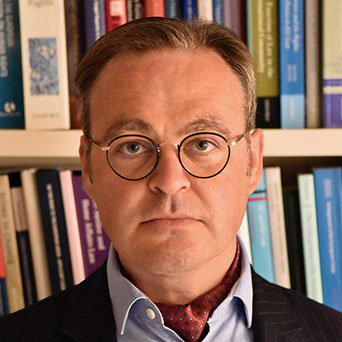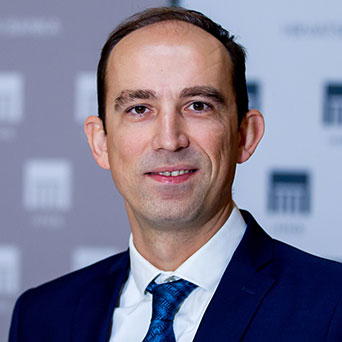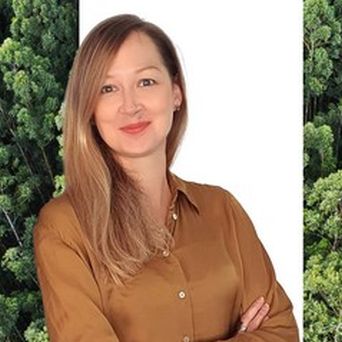EU and Comparative Law Issues and Challenges
Keynote Speakers
Adam Łazowski

Fixing the plane mid air: the European Union in (almost) post-Covid World
Dr Adam Lazowski is Professor of EU Law at the School of Law at the University of Westminster (London). He obtained a Master’s Degree in 1999 and a PhD in 2001 from the Faculty of Law of the University of Warsaw. Between 1999 and 2003, he lectured at the University of Warsaw. During the next two years, he worked as a senior researcher in European law at the T.M.C. Asser Institute (The Hague). His research interests include the law of the European Union as well as public international law. His research has so far led to a number of books, articles, contributions to edited volumes and conference papers. His work was cited by Advocates General at the Court of Justice of the European Union.
In November 2012 Adam gave oral evidence to the EU Select Committee of the House of Lords (an inquiry into the EU enlargement process). View the hearing on Parliament Live. In 2003, his monograph on non-judicial remedies in EU law received first prize in a nationwide competition for the best book on EU law organised in Poland by the Foundation for the Promotion of European Law. Since 1999, Dr Lazowski has actively participated in various EU law training programmes for practitioners inter alia in Poland, Bulgaria, Romania, Slovakia and Estonia. In Estonia, he served as a mid-term expert in an EU-financed biannual project. In that capacity, he provided extensive training to national lawyers as well as co-writing a distance-learning course combined with a series of case studies aimed at Estonian judges. Most recently he was involved in the training of Polish officials for the forthcoming Presidency in the European Union (2011). Over the past years Dr. Lazowski delivered guest lectures at University of Surrey, University of Sussex, University of Leicester, University of Rotterdam, University of Warsaw, University of Tartu, Universite Libre de Bruxelles, the European Law Academy (ERA) in Trier, University of Zagreb, University of Luxembourg, University of Basel.
Sunčana Roksandić

‘EU’s concept of Strategic Autonomy and the Development of the Substantive Criminal Law at the EU Level’
Associate Prof. Dr.Dr.h.c. Sunčana Roksandić, teaches criminal law courses at the Faculty of Law, University of Zagreb. She obtained her joint PhD in 2015 (Zagreb) and 2016 (Freiburg) as a doctoral candidate of the Criminology Department at Max Planck Institute of Foreign and International Criminal Law (summa cum laude). She publishes in Croatian, English and German, primarily in the areas that interlink the protection of human rights with (international) criminal law and in the area of transitional justice, business and human rights. She received an honorary doctorate (doctor honoris causa) in 2019 at East European University, Tibilisi, Georgia for her work and activity related to "the responsibility of transnational corporations and other business enterprises for breaches of human rights." She was a scholarship holder of the Foundation Marija i Mirjan Damaška for her postdoctoral research (2019). Sunčana Roksandić acts as an expert in national, regional and international projects (e.g. UNODC, UNDP, Max Planck Institute for Foreign and International Criminal Law, Global Initiative Against Transnational Organized Crime) and as national expert in the implementation of EU directives and Council of Europe regulation. She is a member of the Management Committee of COST Action: CA18228 - Global Atrocity Justice Constellations and serves as STSM Coordinator (2019-2024) and researcher in the Croatian Science Foundation project "Projekt nedužnosti u Hrvatskoj“ (Innocence project; CroINOP) and Croatian Misdemeanor Law. She is one of the model course drafters and developers of UNODC (E4J) in the area of peace, corruption and security (first drafter). She was a member of the Law Commissions of Ministry of Justice drafting Law on Protection of People with Mental Disabilities and amendments to the Criminal Code as well as a Member of the National Risk Assessment Group on the Risk of Money Laundering and Financing of Terrorism in Croatia, Government of Republic of Croatia. Currently she is a member of the Working Group of the ministry of justice on monitoring the implementation of the Law on Protection of People with Mental Disabilities and external member of the Legislative Committee of the Croatian Parliament.
Roman Šubić

‘The Banking Environment and the Challenges of Introducing the Euro in Croatia’
Dr. sc. Roman Šubić is a Vice Governor of the Croatian National Bank since 2018, where he coordinates and manages affairs in the area of the Statistics Sector and the Office for the Rehabilitation of Credit Institutions. He graduated in 2003 from the Faculty of Economics, University of Zagreb, majoring in Finance, and at the same faculty he completed the postgraduate scientific study of Finance and Banking in 2009. He defended his doctoral dissertation in 2012 at the Faculty of Economics, University of Osijek. From 2004 to the beginning of 2017, he was employed by the Croatian National Bank, first in the field of competition protection in the banking sector and then in the field of supervision and control of banks. Most of his professional experience was gained in participating in banking supervision and performing the duties of head of direct supervision of credit institutions. During his work so far, he has attended numerous professional trainings in renowned international financial institutions. From the beginning of 2017 until his appointment as Vice Governor, he worked as an assistant professor at the Croatian Catholic University, where he continues to teach several courses related to the field of his specialization. He was the leader of a scientific research project and the author of several scientific and professional papers.
Hana Huzjak

Recovery and Resilience in the EU
Hana Huzjak is a senior economic advisor to the European Commission. For almost 15 years she has been dealing with the topics of sustainable development, primarily through the development of public policies and management of EU projects at the national and regional level. She has managed projects for water supply and sewerage, waste management, climate change and equitable transition in over 10 European countries. Hana completed her graduate studies in economics at the University of Zagreb and her postgraduate studies in public policy at the Central European University in Budapest. She has been working for the European Commission since 2014 and is currently a member of the European Commission's Working Group on Recovery and Resilience, with a focus on European Green Plan measures.
Guilherme Marques Pedro

‘Stuck after Leave: The Flying Dutchman Predicament in the Global Migration Regime’
Guilherme Marques Pedro is an Assistant Professor and Head of Postgraduate Studies in International Relations, University of Beira Interior (UBI), where he currently teaches international relations. He has recently finished his second PhD in philosophy of law, focusing on the human rights of migrants at Uppsala University, with a 5-year grant from the Knut and Alice Wallenberg Foundation. He also holds a PhD from the Department of International Politics in Aberystwyth University and a master’s degree from the University of Cambridge. As a visiting researcher, he taught international security at the University of Ottawa and international law at the University of Lisbon. His research interests lie at the intersection of political philosophy, IR theory and the history of international law. He has been awarded several grants, namely the Calouste Gulbenkian for research at the Library of Congress in Washington D.C., the Vice-Chancellor’s grant from the Knut and Alice Wallenberg Foundation at Uppsala University, a grant for the organization of the annual U4 Conference by the Uppsala Forum for Democracy and Peace, and several Erasmus grants for training and teaching abroad. He has also been a visiting researcher in international security at the University of Ottawa and in international law at the University of Lisbon.
